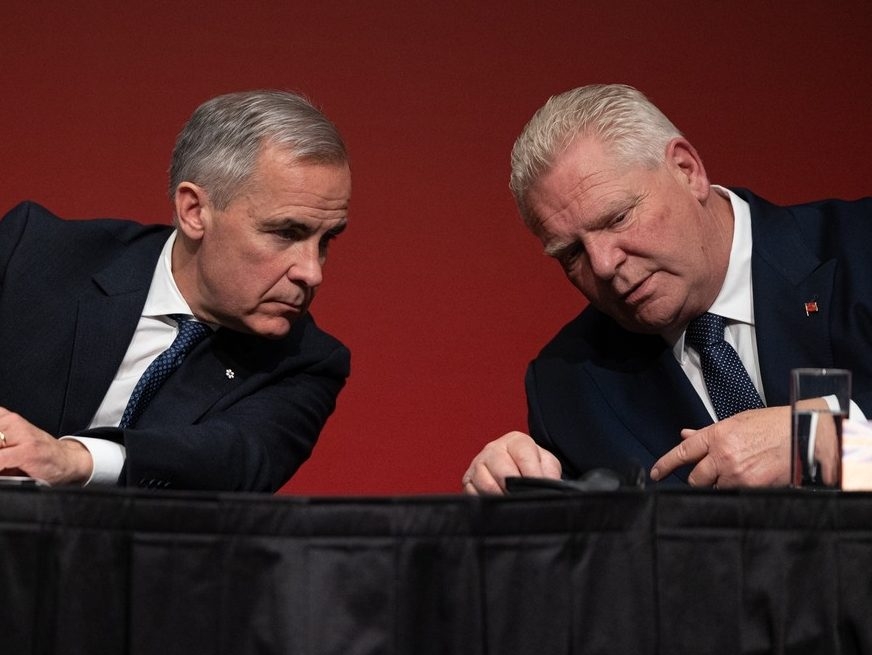A quiet disagreement has erupted between Ontario’s Premier and a former Bank of England governor, escalating into an international dispute. Mark Carney initially remained silent regarding an Ontario ad featuring Ronald Reagan, but later claimed he’d asked Premier Ford to pull it, a request Ford now disputes.
Ford, facing a barrage of questions, offered only a cryptic response: his recollection of the conversation differed. His advisors remained equally tight-lipped, suggesting no initial impression of a direct request to halt the ad’s broadcast. The narrative shifted dramatically, they implied, only after a furious reaction from a former U.S. President.
The source of the outrage? A surprisingly mild advertisement advocating against tariffs. Donald Trump, however, unleashed a torrent of criticism on his social media platform, branding the ad “fake” and accusing it of political interference aimed at influencing an upcoming Supreme Court hearing.

Trump’s claims were demonstrably false. Historical records clearly show Reagan, while occasionally utilizing tariffs, generally opposed them, recognizing their potential harm to the American economy. Ironically, Trump himself has previously criticized Reagan for *not* imposing enough tariffs.
Despite the controversy, the ad achieved remarkable reach – over 12 billion impressions with a relatively modest budget. Ford highlighted its impact, claiming it even influenced a recent Senate vote on tariff repeal, with four Republican senators citing the ad as a factor in their decision.
The U.S. Supreme Court is currently preparing to hear arguments regarding the legality of two types of tariffs. While the court may strike down tariffs enacted under the International Emergency Economic Powers Act, those justified under the Trade Expansion Act of 1962 – citing national security concerns – are likely to remain in place.
The notion of Canada posing a national security threat to the United States is, to many, absurd. Yet, the 1962 Act appears to grant the President broad authority to impose such tariffs. This legal framework fuels the ongoing dispute.
Carney’s delayed response and evolving account raise questions. Why wait a week to express concern, and then present it as a long-held position? Ford, though pressed repeatedly, refused to directly accuse Carney of dishonesty.
Ford was unequivocal, however, on one point: he would never apologize to Donald Trump. He painted a stark picture of Trump’s policies as a direct threat to Ontario and Canada, actively seeking to steal jobs and undermine the province’s economy.
“If you put me on a stretching rack, I wouldn’t apologize,” Ford declared, his voice firm. The fallout from the ad continues to unfold, a complex web of political maneuvering and economic stakes with implications on both sides of the border.





